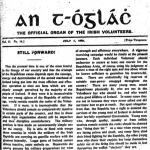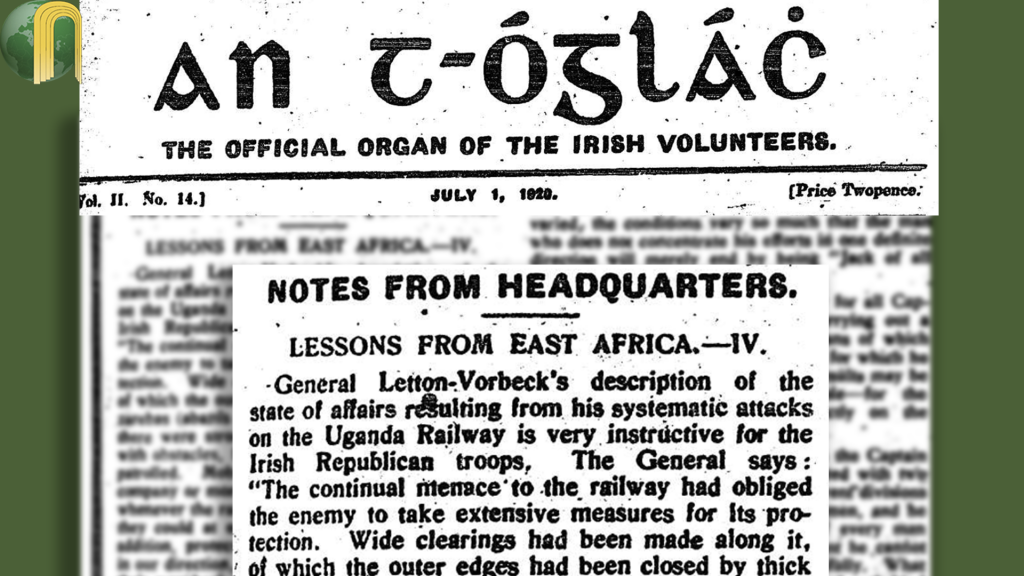In the wake of the 1916 Rising Republican leaders realised that mistakes had been made in the planning and implementation of the rising.
Indeed, it was realised that several generations of republicans had done likewise. In the intervening period IRA leaders began to study the guerilla warfare tactics of the Boer army in South Africa, while Michael Collins and others had been in communication with Boer generals. In July 1920 the republican newspaper, An t-Oglac highlighted the various lessons which were to be learned from conflicts across the world including in East Africa where attacks on the Ugandan railway ‘were instructive for Irish republicans’. The suggestion here was that the IRA would continue to force the RIC and the military to concentrate their efforts on defensive structures. Even with these success An t-Oglac warned that the IRA should continue to carry out more training of its volunteers and to keep gathering intelligence, which would be a key factor in the outcome of the war. The newspaper also appealed to battalion leaders and company captains to ensure that volunteers were ‘specialists’ owing to the varied work they carry out. Every company, An t-Oglac believed should have snipers, grenadiers, engineers and first aid men. Grading men according to their ability was an important consideration.Source: An t-Oglac, 1 July 1920, page 4
 An t-Oglac
An t-Oglac
